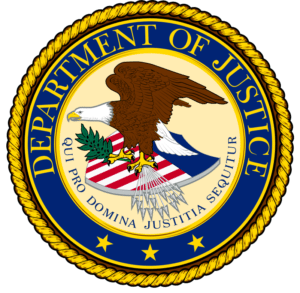Company and CEO Charged With Illegally Adding Scheduled Drugs To Supplements
 As reported by the Atlanta Journal-Constitution (AJC), an eighteen count indictment against Jared Wheat, the CEO of Hi-Tech Pharmaceuticals, Inc. (Hi-Tech), a supplement company based in Norcross, Georgia, has been unsealed. According to the superseding indictment, the current charges against Wheat include wire fraud, money laundering, introducing misbranded drugs into interstate commerce and manufacturing and distributing controlled substances, specifically Schedule III controlled anabolic steroids. There are also charges in the indictment against John Brandon Schopp, the Director of Contract Manufacturing for Hi-Tech.
As reported by the Atlanta Journal-Constitution (AJC), an eighteen count indictment against Jared Wheat, the CEO of Hi-Tech Pharmaceuticals, Inc. (Hi-Tech), a supplement company based in Norcross, Georgia, has been unsealed. According to the superseding indictment, the current charges against Wheat include wire fraud, money laundering, introducing misbranded drugs into interstate commerce and manufacturing and distributing controlled substances, specifically Schedule III controlled anabolic steroids. There are also charges in the indictment against John Brandon Schopp, the Director of Contract Manufacturing for Hi-Tech.
The indictment alleges that Wheat, Schopp, and Hi-Tech manufactured and distributed to prospective and current customers false U.S. Food and Drug Administration (FDA) Certificates of Free Sale, good manufacturing practice (GMP) certificates, and GMP audit reports. The indictment contends that the GMP certificates and audits reports, which are supposed to come from an independent third party, were issued by PharmaTech, a company controlled by Wheat. The manufacturing and distributing controlled substances charges stem from the government’s allegations that Hi-Tech produced at least five supplements containing anabolic steroids. Anabolic steroids are a Schedule III controlled substance and require a prescription. The misbranded drug charge alleges that Wheat and Hi-Tech manufactured a supplement named Choledrene which contained lovastatin. Lovastatin is an ingredient used in statin drugs and is regulated by the FDA. Hi-Tech should never have used lovastatin as an ingredient in any supplement, and they did not include it on the list of ingredients on the bottle.
If he is found guilty, this will not be Wheat’s first time in jail. In 2014, he served two months in federal prison for failing to carry out a recall brought about the Federal Trade Commission’s claim of false advertising for Hi-Tech’s weight loss products. Wheat was released when the recall had been completed. In 2009, the FDA announced he received a two-year prison sentence after being found guilty of selling counterfeit medications online which he claimed were made in Canada, but were actually manufactured in unsanitary conditions in Belize. An investigation by AJC listed several other legal battles between federal authorities and Wheat/Hi-Tech.